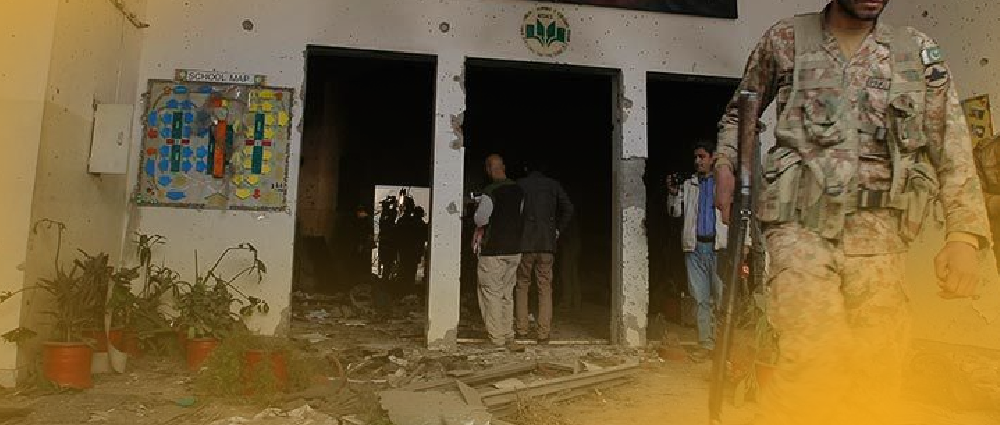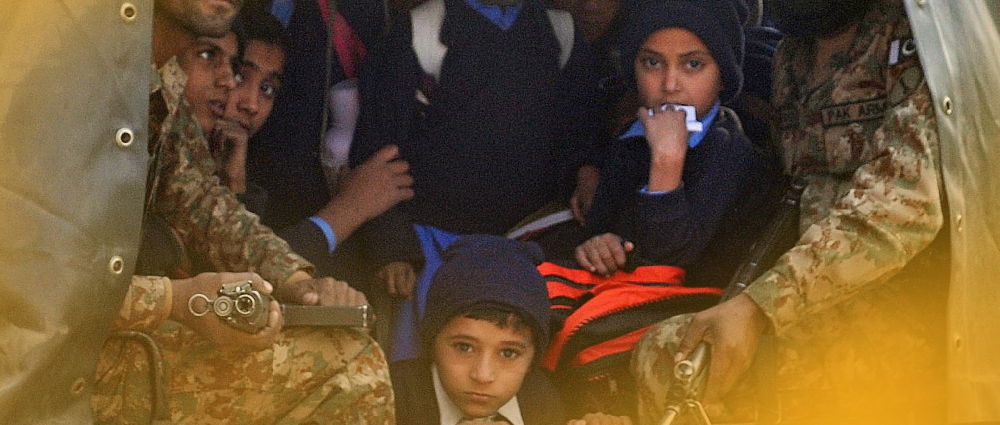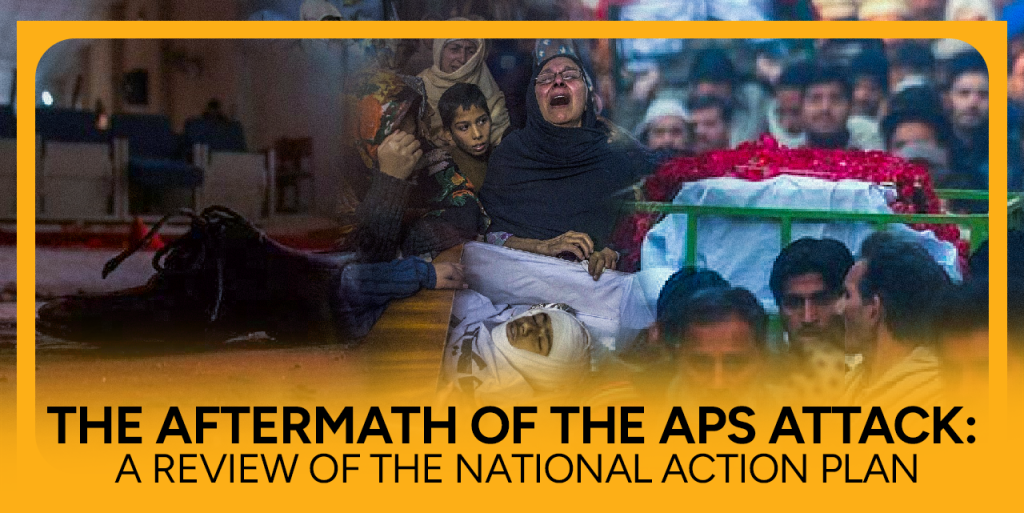16 December 2014 – A Tragic Day for All.
When the Army Public School (APS), an auspicious educational establishment in Peshawar was attacked that marked a pivotal moment in Pakistan’s fight against terrorism. Following this horrific tragedy, the government of Pakistan formulated the National Action Plan (NAP) in early 2015 to combat terrorism and extremism in all its forms.
The NAP was seen as a comprehensive strategy, aimed at tackling the root cause of terrorism, strengthening law enforcement, and improving national security. But how effective has this plan been? Let’s explore its implementation and assess the impact it has had in combating terrorism in the country.
What is the National Action Plan?

Officially launched in 2015, the National Action Plan, is a multi-faceted approach designed to address the growing menace of terrorism in Pakistan. After the APS attack, the country sought to strengthen its counterterrorism efforts and prevent any further atrocities similar to the APS attack. The plan outlines several key areas of focus, including:
Strengthening the Legal Framework
The NAP aimed to expedite the prosecution of terrorist suspects and ensure the rapid implementation of anti-terrorism laws. This included amendments to existing laws and setting up special courts for pending trials.
Countering Extremism
The plan aimed at eliminating extremism with the help of ideological and educational reforms, focusing on eradicating hate speech, and taking action against radicalizing elements in society.
Improving Law Enforcement
Enhancing the effectiveness of law enforcement agencies was a central rule of the NAP, with a focus on intelligence-sharing, better coordination, and counterterrorism operations.
Regulating Religious Institutions
The NAP also sought to tighten the control over madrassas (religious schools) to ensure they did not become breeding grounds for terrorism.
Provincial Coordination
The plan emphasized the importance of federal-provincial coordination in combating terrorism, ensuring that all regions of Pakistan were aligned in their counterterrorism efforts.

The Implementation of the NAP: A Mixed Picture
While the National Action Plan was launched with a sense of urgency and determination, its implementation has faced several challenges over the years. Despite some initial successes, such as military operations against terrorist groups and the establishment of special courts, there have been issues that have obstructed its complete development.
1. Legal and Judicial Challenges
One of the most significant hurdles to the success of the NAP has been the slow speed of legal and judicial reforms. While the creation of special courts for terrorism-related cases was a step in the right direction, the conviction rates have remained low. Many high-profile terrorist suspects continue to hide from justice due to weak evidence, slow trials, and a lack of capacity within the judicial system.
The NAP’s emphasis on countering extremism through education and ideological reform has not yielded immediate results. Although there have been efforts to introduce more balanced and inclusive curricula in schools, it continues to thrive in certain areas of society.
The ideological battle against extremist principles is an ongoing process, requiring not just government intervention but also a collective effort from civil society, religious leaders, and the media.
3. Terrorist Networks and Regional Spillover
Pakistan’s ongoing struggle with the problem of terrorist groups is made worse by instability in the region. While the NAP aimed to cut off the logistical and financial support for terrorist organizations, these groups operating across the border, along with regional political tensions, have prevented the full elimination of these networks. Pakistan has made significant strides in countering internal terrorism, but cross-border threats remain a challenge.
4. Political Will and National Consensus
The political will to implement the NAP has been inconsistent. While the government made a strong commitment in the initial phase, political challenges and shifting priorities have sometimes delayed the execution of key elements of the plan. Furthermore, the lack of a unified national consensus on some aspects of the NAP, such as regulating madrassas and dealing with extremist religious groups, has created barriers to its success.

Effectiveness of the National Action Plan
Despite the setbacks, the National Action Plan has made a positive impact on Pakistan’s security landscape. The reduction in terrorist incidents, the dismantling of several major terrorist groups, and the improvement in the coordination between law enforcement agencies are notable achievements. The establishment of a National Counter-Terrorism Authority (NACTA) has also helped streamline efforts to combat terrorism at the national level.
However, the NAP’s success should not be judged solely by immediate results. The fight against terrorism is a long-term commitment that requires sustained efforts and adaptation to evolving threats. The main idea here is that while the National Action Plan has made significant strides, there is still much work to be done.
Standing with Pakistan: Rava Documentary Films
In these challenging times, it is crucial to support initiatives that contribute to Pakistan’s development and security. One such initiative is the Rava Documentary Films YouTube channel, which provides an in-depth and unbiased analysis of the socio-political landscape in Pakistan.
Here, at Rava, we aim to shed light on critical issues, including terrorism, and offer a platform for informed discussions. By standing with Pakistan, we continue to play a vital role in educating and informing the public about the nation’s efforts to overcome extremism and terrorism.
Through engaging content, our channel encourages viewers to reflect on the importance of unity and resilience in the face of adversity.
Conclusion
The National Action Plan was a significant step toward combating terrorism in Pakistan following the APS attack. While the plan has shown mixed results in terms of implementation and effectiveness, it remains a crucial component in the country’s ongoing battle against extremism.
Pakistan’s fight against terrorism is far from over, but the NAP provides a strong framework for future efforts. By supporting platforms like Rava Documentary Films, we can all play a role in raising awareness and contributing to positive change.

